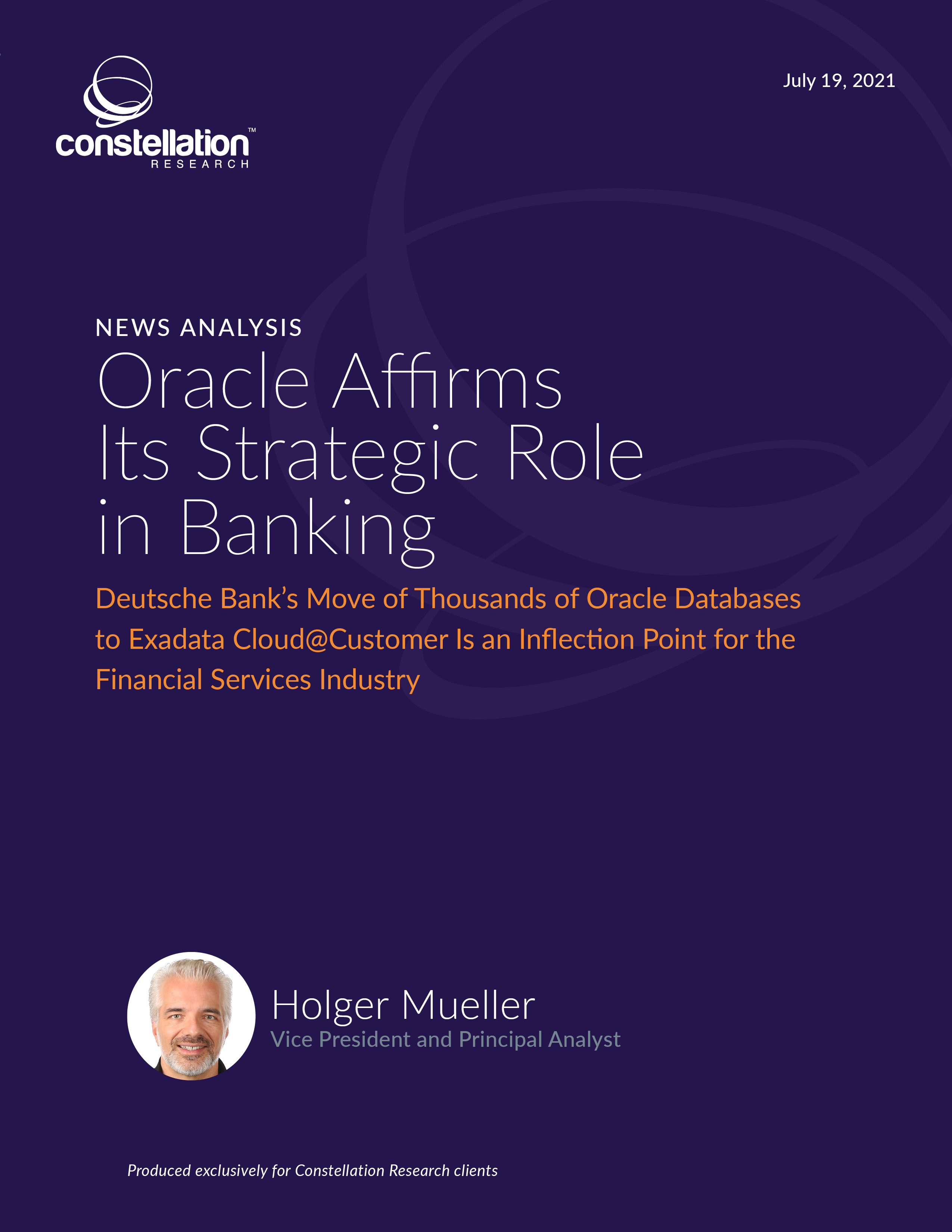 Introduction
Introduction
In the era of digital transformation, IT has evolved from being a pure cost factor to a strategic weapon as enterprises strive to stay ahead of their competition by innovating their IT platforms. Data is at the forefront of digital transformation, because moving to a cloud environment enables all relevant next-generation applications of an enterprise—the most prominent ones being analytics, in-house custom development, and AI/ML use cases.
Traditionally, banking’s IT strategy has been characterized by both a high level of conservatism and large IT budgets. The combination has led many banks into considerable technical debt as they failed to move off their traditional platforms. And although most banks have adopted client/server and internet architectures, they are only now starting to move their critical applications to cloud infrastructure to ward off competition from cloud-native fintech startups. All eyes in the banking world are now on Australia, where the key local banks are in a multiyear effort to create new core banking applications in the public cloud.
Oracle, as the decades-long market leader in the mission-critical database space, has had a very strong position in the banking industry. The question has been whether Oracle would remain a relevant provider of future cloud-based banking applications. Banking IT leaders have been mulling this over for several years now, which is what makes the decision of a major institution such as Deutsche Bank to partner with Oracle an inflection point for the financial services industry.


